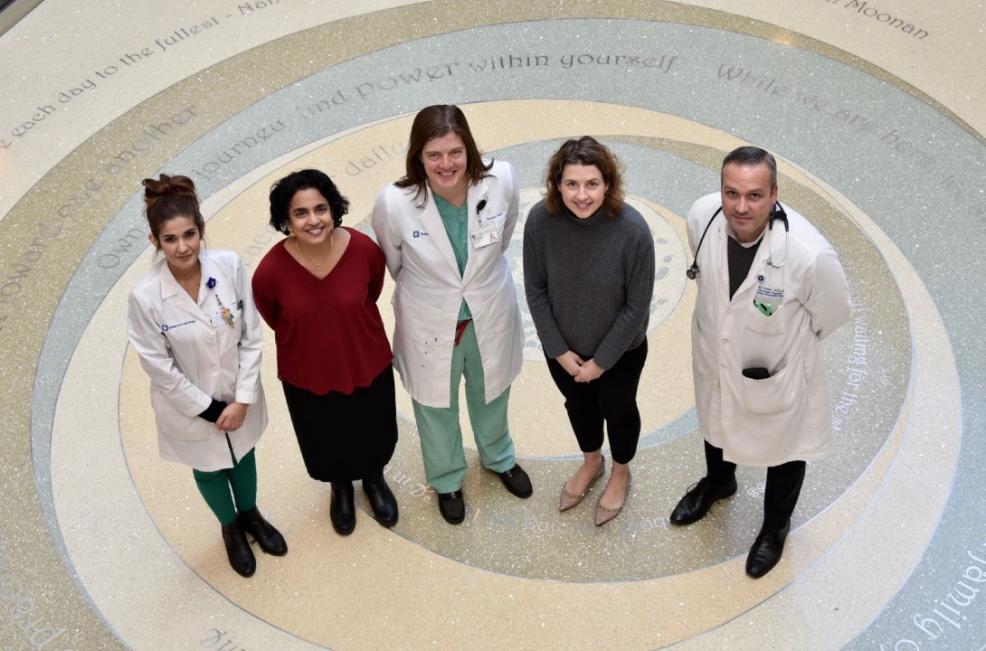On September 1, the Duke Cancer Institute Melanoma (and advanced skin cancers) Disease Group will expand clinic services at its Duke Cancer Center Durham location (Clinic 5-1) to include dermatological cancer care for those patients who require multidisciplinary care.
This could include but is not limited to, patients with squamous cell carcinoma, basal cell carcinoma, melanoma, Merkel cell carcinoma or B and T cell lymphomas of the skin. The oncodermatology clinic will also specialize in treating patients with a history of transplant who develop skin cancers (not uncommon in this patient population) and treating patients with all types of cancer who experience skin-related side effects of cancer treatment.
“Previously these patients would have needed a referral to the Dermatology Clinic in Duke South, which, while close-by, is not in Duke Cancer Center,” said DCI dermatologist Meenal Kheterpal, MD, who will lead this new clinic. “For those skin cancer patients who need to see several physicians in the cancer center, their care will be better coordinated by this clinic.”
Kheterpal is an assistant professor in the Department of Dermatology, managing director of the department's Dermatology Clinical Research Unit, and medical director of the Teledermatology Service. She specializes in the field of dermato-oncology (also called oncodermatology), which includes early detection and diagnosis of melanoma, basal cell carcinoma, and squamous cell carcinoma through the utilization of advanced skin cancer imaging, surveillance and dermoscopy, and clinical management of more complex skin cancer cases.
“Dr. Kheterpal’s clinic in the Duke Cancer Center represents further commitment by DCI to taking excellent care of skin cancer patients by expanding multi-disciplinary evaluation,” said DCI surgical oncologist Georgia Beasley, MD, MHS, co-director of the DCI Melanoma (and advanced skin cancers) Disease Group.
Kheterpal has been an integral part of the group — which includes practitioners with expertise in medical oncology, surgical oncology, radiation oncology and dermatology — since she came to Duke in 2017.
“Having dedicated dermatology expertise is essential to providing coordinated care for our skin cancer patients, and we are lucky to have such wonderful colleagues in Dermatology,” said DCI medical oncologist April Salama, MD, director of the DCI Melanoma (and advanced skin cancers) Disease Group.
With the new clinic, patients throughout the region will benefit from both improved care and timelier access to care.
Kheterpal said she looks forward to “being an advocate for complex cancer patients from the time of their diagnosis (either at Duke or outside of Duke), giving them the most up-to-date dermatology care possible and facilitating the connection with additional cancer experts as needed.”
Duke Cancer Institute surgical oncologist Paul Mosca, MD, PhD, MBA — an associate professor in the Department of Surgery who specializes in the treatment and research of melanoma and other skin and soft tissue tumors and who has expertise in the utilization of palliative surgery in advanced cancers — will also see patients in the new clinic.



